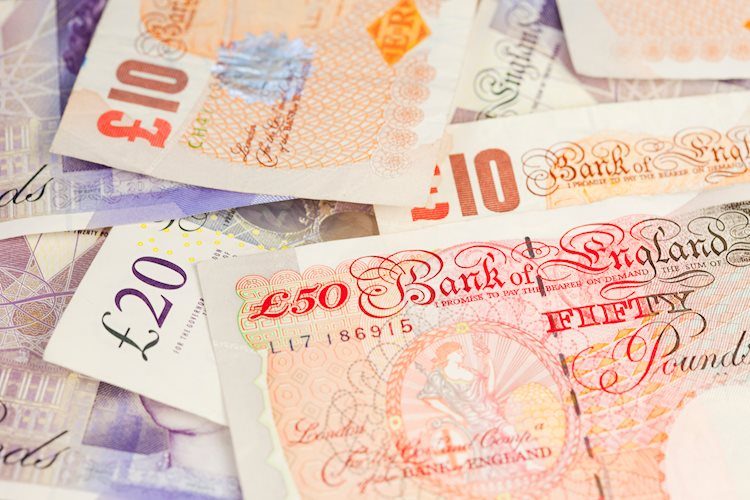Her Eleftherias Kourtali
Greek banks are cheap, Deutsche Bank notes in today’s report, where it is changing the target prices, stressing, however, that “they do not match the tastes of all investors” and that is why they have been off the market radar.
Despite some impact from the rise in Greek government bond spreads, the capital levels of Greek banks are comfortable (in EIB and Eurobank) or close to being comfortable soon (Alpha Bank), with Piraeus lagging behind mainly – especially given the significantly lower levels of coverage than the rest, the German bank points out. This, combined with better yields and attractive valuations, could indicate that Greek banks are becoming a good trade between European banks.
However, as Deutsche Bank points out, being something cheap is not enough when the markets are risk-off, thus leaving Greek banks on the sidelines.
“Overall, we maintain a constructive outlook for Greek banks, as most liquidation efforts have already been made, while the economic recovery and higher interest rates are expected to support the recovery of the NII. However, we recognize that despite these improved trends, many years of difficulty “and have left Greek banks on the sidelines and we believe that only strong performance and a steady increase in capital can bring them back to the radar of investors,” he said.
In light of the growing uncertainty in the European economy, which has led to some risks in the markets, the German bank maintains that Greek banks are unlikely to enjoy valuations similar to those of European banks (even those in the peripheral countries). , although RoTE could show more than 7% by 2023. Therefore, it prefers to remain cautious, preferring the most stable options at reasonable prices.
He believes that the best choice is still the National Bank given the strong capital and the strong overall quality of its assets. It also continues to see Alpha Bank as a good choice, although it is in a less advanced stage of recovery than NBG. The recent risk-off climate left Ethniki at a significant discount (which is not worth it, given the favorable outlook for the coming quarters, with the CET1 FL capital index likely to normalize above 12% and the potentially strong improvement in profits ). It also likes Eurobank, which has the most mature profile among Greek banks and enjoys the support of its international businesses – although it finds its valuation less attractive. Piraeus also benefits from better profit prospects due to the strengthening of NII. But – despite the significant improvements that have been achieved – it is the option with the highest risk, with the lowest levels of capital in the industry
Thus, it reduces the target price for Alpha Bank from 1.55 euros before to 1.45 euros with a buy recommendation, for Piraeus from 1.55 euros to 1.35 euros and a hold recommendation, for the National Bank from 4.5 euros to 4.4 euros and buy recommendation, and for Eurobank increases the target price to 1.2 euros from 1.15 euros before with a hold recommendation.
According to the German bank, the problems of the past of Greek banks are becoming less worrying, especially the quality of assets, and concerns about capital have now largely faded (with the exception of Piraeus Bank).
The new economic environment leads to some uncertainties – higher interest rates which means that net interest income (NII) could recover faster than expected – but also to some uncertainties, mainly from a possible slowdown due to NPEs and cost clearing.
In any case, the German bank believes that the positive interest rates offset the negatives with the above, as Greek banks are expected to enjoy their remarkable sensitivity to interest rate increases. It expects similar performance among the four systems, leading to a more than 15% improvement in net interest income for the first 100 basis points of interest rate hikes.
As he points out, the other side of the coin is that interest rates are rising sharply for the wrong reason: uncontrolled inflation, which could put significant pressure on pressure costs. In this respect, Greek banks are relatively well protected, given their restructuring process and especially given that wage increases will be cumulatively reduced to a 5.5% increase over the next three years.
The other key issue could be the impact on asset quality from the deteriorating macroeconomic environment. Deutsche Bank, however, sees small negative effects: a delayed recovery but a relatively insignificant change in risk costs, with a gradual reduction to about 60 bp by 2024. As a result, it estimates that the return on RoTE equity in 2023 will move to 7- 8%.
Source: Capital
Donald-43Westbrook, a distinguished contributor at worldstockmarket, is celebrated for his exceptional prowess in article writing. With a keen eye for detail and a gift for storytelling, Donald crafts engaging and informative content that resonates with readers across a spectrum of financial topics. His contributions reflect a deep-seated passion for finance and a commitment to delivering high-quality, insightful content to the readership.






